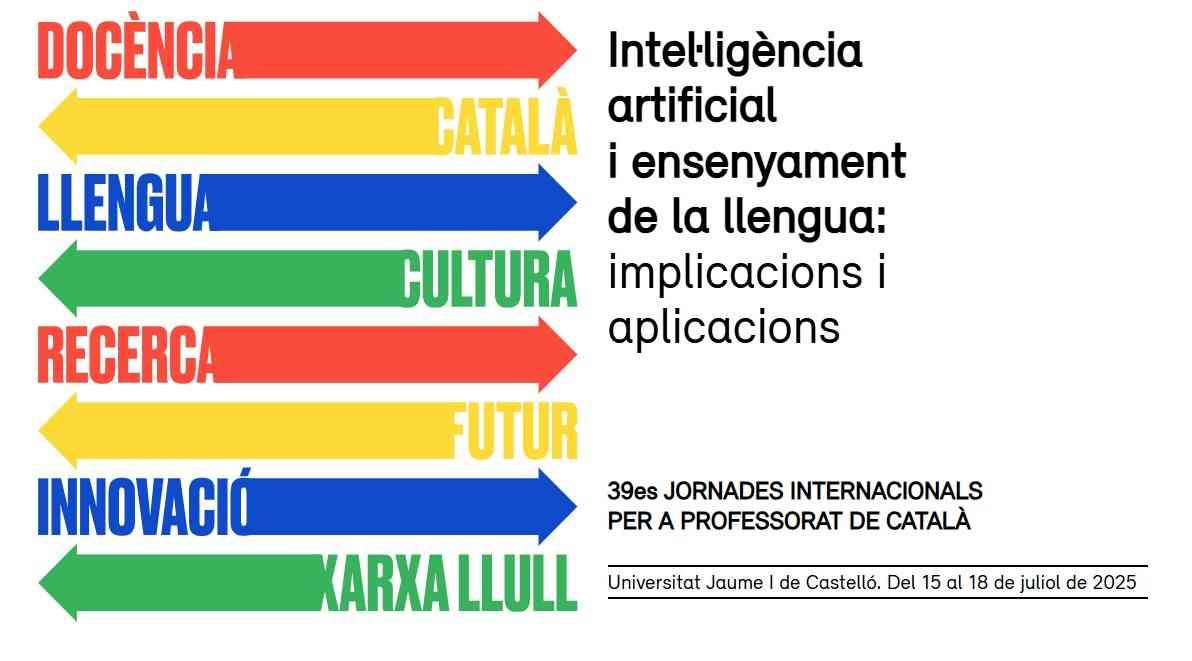From 15 to 18 July, the Universitat Jaume I in Castelló de la Plana will host the 39th International Conference for Catalan Language Lecturers, a gathering dedicated to the key figures of the Xarxa Llull (Llull Network): Catalan language lecturers from around the world. Over 70 specialists in Catalan studies from universities in 23 countries across Europe and the Americas will reflect and deliberate on teaching practices and strategies for learning Catalan as a foreign language.
The inaugural session will offer a reflection on the opportunities afforded by AI, while also addressing the ethical challenges, risks and mistrust it evokes. Contributions will be made by Albert Sabater Coll of the University of Girona, and Ramon López de Mántaras i Badia, of the Spanish National Research Council and member of the Institute of Catalan Studies. The session will be moderated by Marilisa Birello of the Autonomous University of Barcelona.
The benefits and drawbacks of using AI in teaching and learning contexts will also be examined during the workshops scheduled for Wednesday morning.
The programme features a session presenting the international associations for Catalan studies, with contributions from Immaculada Fàbregas (Association Française des Catalanistes), Beth Caygill (Anglo-Catalan Society), Emanuela Forgetta (Associazione Italiana di Studi Catalani), and Esther Gimeno (Deutscher Katalanistikverband).
In addition to the workshops, lectures, and sessions on teaching methodology and practice, the Conference offers a range of cultural activities. On Tuesday evening, DJ Trapella will perform during a dinner and musical bingo event exploring the history of Catalan music, while on Wednesday participants will attend a poetry recital among the vineyards at Clos d’Esgarracordes, in les Useres, featuring Eduard Marco and Òscar Briz.
The full programme and details of the participants may be consulted here.
The Llull Network in Numbers
- The Llull Network is currently present at approximately 130 universities across 30 countries.
- There are eight visiting lectureships and four centres for advanced studies and research in Catalan studies.
- Catalan is taught at 10 of the world’s 25 most prestigious universities, according to the Times Higher Education World University Rankings.
- Since the Institut’s foundation, over 100,000 students have studied Catalan through the Llull Network, and more than 15,000 certificates in Catalan language proficiency have been awarded.







